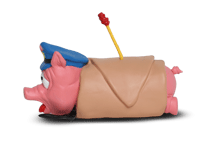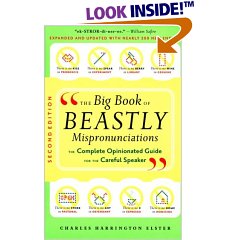This came in response to a movie column we wrote:
Subject: your article
First, let me just say this. I don't got nothing against you as a person. It's your puritanical, fascistic morality [that what, you don't like?]. If your only qualifications are you had a job as a high school teacher, watch "Grease" another screening and keep your eye on the principle, Eve Arden, and Blanche, Dody Goodman [huh?]. Perhaps these can be role models for your career. If your "bubblegum" views are what you wish for the rest of us, I'll have Grease, thank you. Keep your prozac world, I'll have the real thing any day.
We were not aware that the world of "Grease" was, in fact, the "real thing." But what are we without our puritanical, fascistic morality? Just an empty, grammatical shell. No thanks.












